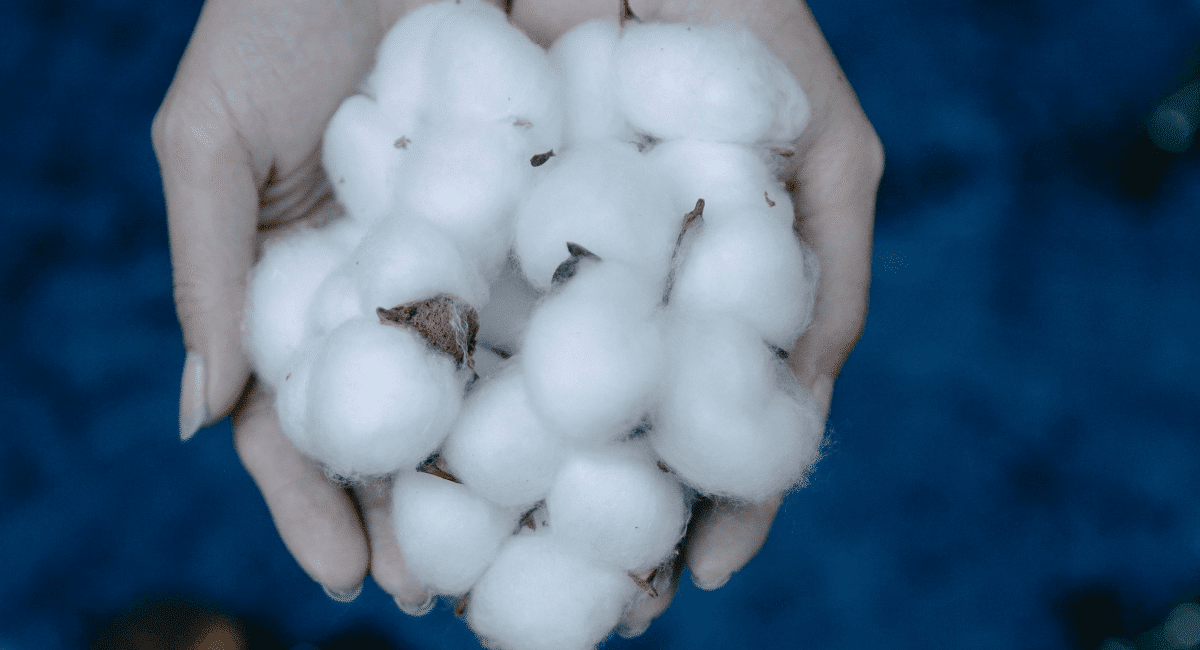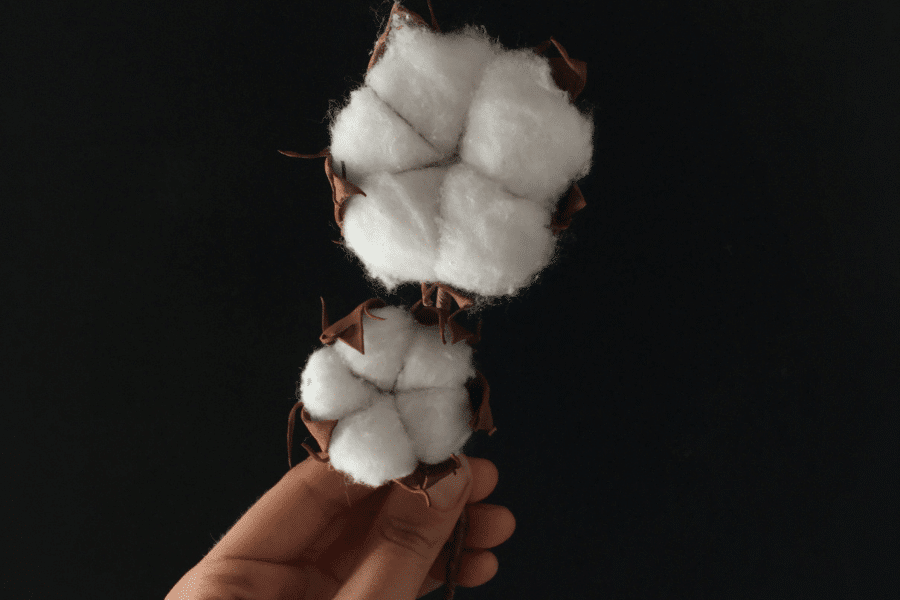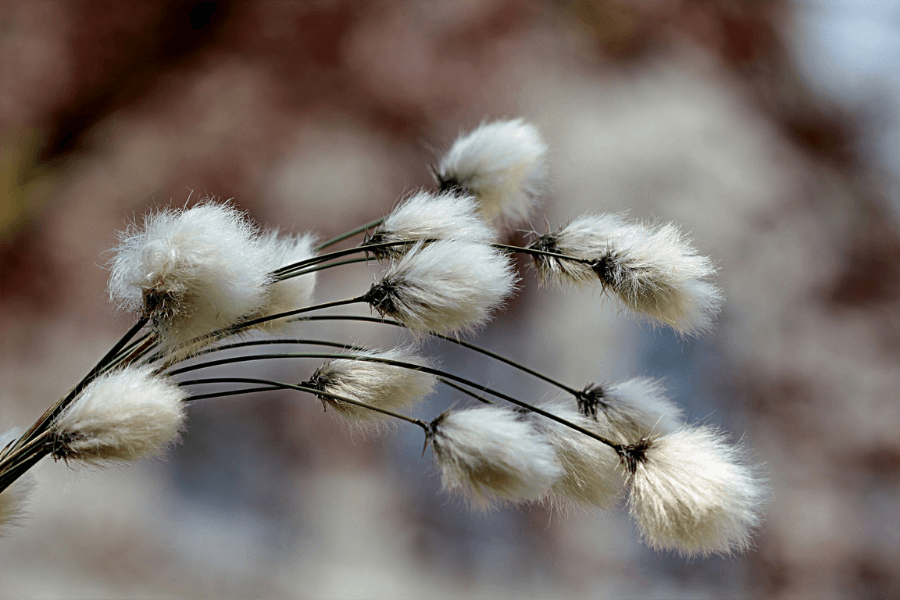
Is Organic Cotton Sustainable? 11 Essential FAQ Answered
Posted on | by Milos Djordjevic
Organic cotton is a popular choice for eco-friendly fashion. But is organic cotton sustainable to the extent people think it is?
In this blog post, we’ll take a closer look at its sustainability and explore whether or not it’s worth producing. We’ll also discuss some of the pros and cons of organic cotton compared to other materials like synthetic fabrics. So, let’s get started!
What Is Organic Cotton?
1. How Is Organic Cotton Made?
Organic cotton, also known as natural or eco-friendly cotton, is a type of cotton that has been grown without the use of synthetic pesticides or fertilisers. This is typically done by using natural methods like crop rotation and cover cropping to promote healthy soil and support biodiversity.
The harvested cotton fibres are processed without the use of harmful chemicals or bleach. Instead, organic cotton is treated with natural or water-based dyes or safer chemicals for whitening. This helps preserve its natural properties and keep it free from toxins. Therefore, it is safer for people with sensitive skin or allergies. All of these make organic cotton more sustainable as well as eco-friendly and safer for everyday use.
2. How Is Organic Cotton Grown?
The cotton plants are usually grown in warm, sunny climates like Turkey, India and Egypt.
The first step is planting the seeds, which are mostly watered by rain. During the growing period, farmers don’t use pesticides or artificial products. Instead, they put natural compost around the plants to feed them and remove any pests by hand.
Once the plants are mature, farmers carefully hand-pick the fluffy cotton balls from the bushes. The cotton is then cleaned and spun into thread, which can be used to make a variety of different fabrics.
3. Does Organic Cotton Shrink in the Wash?
One of the must-know facts about organic cotton is that it may shrink (around 3%) after being washed. This is because 100% cotton fabric is not chemically treated. But, there is a way to minimise this. It’s best to use a cold wash or a water temperature of 30°C or less the first time. Also, it helps to use a mild detergent instead of a harsh one. Brands usually put these instructions along with the clothes.
4. Is Organic Cotton Stretchy?
Compared to synthetic fabrics, organic cotton is generally more durable and doesn’t stretch out as quickly. This makes it a great choice for any type of clothing that needs to last a long time without becoming saggy or loose in the wash.
But, the interlock structure made during the production of clothing items out of organic cotton gives them a soft texture and elasticity without the use of elastin. This means that the clothes extend and adapt to their wearers, providing them with the freedom to move.
So, if we take skinny jeans made out of organic cotton as an example, they will stretch enough for you to feel comfortable in them, but they won’t sag over time.

5. Is Organic Cotton Better for Skin?
Because organic cotton isn’t subjected to the harsh chemicals necessary for conventional cotton growth and production, it is much better for sensitive skin. Regular cotton is manufactured using up to 8,000 synthetic compounds, the majority of which are not present in organic cotton clothing. This makes organic cotton clothing considerably healthier for your skin and ideal for children and babies.
Before buying an item, look for the Oeko-Tex Standard 100 label to make sure that the fabric does not contain any hazardous chemicals. For other sustainable fabrics that are kind to your skin, check out our eco-friendly fabrics guide.
6. What Are the Advantages of Organic Cotton?
There are several advantages to choosing organic cotton over conventional one.
Organic cotton is a more environmentally friendly material than conventional cotton. Because it does not rely on the intensive use of synthetic fertilisers and pesticides, it helps reduce pollution and conserve natural resources like soil and water.
Also, organic cotton uses significantly less water than other types of cotton. This is because it doesn’t require additional irrigation or the spraying of harmful chemicals that can seep into local waterways and ecosystems.
Another one of the organic cotton benefits is that it helps eliminate many of the risks associated with pesticide exposure. This includes respiratory problems, skin irritations, and endocrine disruption.
Finally, this type of material is often seen as being of a higher quality than the material made out of conventional cotton. This is because it is grown in more carefully controlled conditions and doesn’t contain any harmful chemicals that can degrade the material over time.
7. Is Organic Cotton More Breathable?
Short answer: yes. Organic cotton has natural fibres that are longer than those of regular cotton. Because of that, it is more breathable but strong enough to maintain the shape of the material. This feature makes organic cotton perfect for things like beddings and summer clothes, as it allows air to go through it keeping you cool and fresh.
8. Is Organic Cotton Expensive?
Yes, organic cotton is more expensive than conventional cotton. This is because it costs more to produce and certify organic cotton products. However, many people believe that the advantages of organic cotton vs cotton are worth the extra cost.
9. What Are the Disadvantages of Organic Cotton?
One of the main disadvantages of organic cotton is that it requires more land and energy to produce than conventional cotton. This is because organic farmers generally use more time-consuming production methods that require extra work power and energy. Also, additional fields are needed as the organic plants give less product than non-organic ones.
Another downside is that it can’t keep up with the demand. In other words, there is not enough organic cotton being produced to meet the global demand for making clothing and other products.
Some harmful natural pesticides are also used in its production. These pesticides can potentially cause health problems for farmers and workers exposed to them. They can also cause allergic reactions or skin rashes, although probably not as severe as the conventionally used chemicals.
Finally, organic cotton is generally more expensive to produce and sell than conventional cotton. This means that consumers may have to pay more for products.

10. Why Is Organic Cotton Better?
There is no doubt that there are many important benefits of organic cotton that make it one of the more sustainable fabrics.
First, organic cotton is considered to be more environmentally sustainable than other types of cotton. This is because it doesn’t rely on the intensive use of synthetic fertilisers and pesticides, and helps reduce pollution and conserve natural resources like soil and water.
Second, it uses significantly less water than other types of cotton. Because it does not rely on the intensive use of synthetic fertilisers and pesticides, it helps reduce pollution and conserve natural resources like soil and water.
Third, organic cotton has been shown to offer better quality than conventional cotton. This is due to the careful production methods employed by organic farmers, as well as its lack of harmful chemicals that can degrade the material over time.
Finally, the workers involved in its production have fairer working conditions than what is standard for the industry. They are paid a fair wage and have regular working hours.
There is no doubt that there are many important benefits of organic cotton that make it one of the more popular eco-fabrics, along with hemp—whose sustainability status isn’t black and white either.
11. What Percentage of Cotton Is Organic?
One of the more interesting organic cotton facts is that it makes up a relatively small percentage of global cotton production, accounting for only 0.95% of the total global cotton harvest.
Sustainable fashion statistics show that most of this organic crop was produced in India, followed by China, Kyrgyzstan and Turkey.
Final Thoughts
So, is organic cotton sustainable?
The answer to this question is a little more complicated than a simple yes or no. While it’s true that organic farming practices do have many environmental benefits, there are also some drawbacks to consider. Ultimately, its sustainability depends on many factors, such as how and where it’s grown.
If you’re looking for environmentally friendly clothing options, organic cotton is worth considering—especially from fashion brands that are dedicated to sustainability.